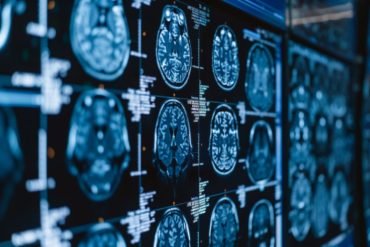Summary: ChatGPT has shown a significant ability to understand and articulate emotions, according to a recent study.
The study employed the Level of Emotional Awareness Scale (LEAS) to evaluate ChatGPT’s responses to various scenarios, comparing its performance to general population norms. The AI chatbot not only outperformed the human average but also showed notable improvement over time.
These findings suggest that ChatGPT could be a valuable tool in cognitive training for clinical populations with emotional awareness impairments and in facilitating psychiatric diagnosis and assessment.
Key Facts:
- ChatGPT, an AI chatbot, has demonstrated a significant ability to understand and express emotions, outperforming the general population in Emotional Awareness (EA) tests.
- The AI’s performance improved significantly over a month, nearly reaching the maximum possible score on the Level of Emotional Awareness Scale (LEAS).
- With its emotional awareness capabilities, ChatGPT holds the potential for use in cognitive training for clinical populations with emotional awareness impairments and in psychiatric diagnosis and assessment.
Source: Neuroscience News
Artificial Intelligence has revolutionized various aspects of our lives, and its advances in the field of natural language processing are no exception. ChatGPT is a prime example of this, having established a record-breaking user base due to its proficiency in generating text across diverse domains.
However, beyond its linguistic prowess, there is a new frontier to be explored: can ChatGPT understand and express emotions?
Emotional Awareness (EA) is the ability to recognize and articulate one’s own emotions and those of others. It’s a crucial factor in human interaction and is increasingly being recognized as a valuable tool in diagnosing and treating psychopathology.
A recent study aimed to quantify ChatGPT’s EA capabilities, employing the Level of Emotional Awareness Scale (LEAS) as a metric.
LEAS is a performance-based test that assesses EA by analyzing responses to twenty different scenarios. The study compared ChatGPT’s responses with the general population norms. To evaluate the bot’s learning curve, a second assessment was conducted one month later. Two independent licensed psychologists also evaluated the appropriateness of ChatGPT’s responses in the given context.
The results were quite promising. In the initial examination, ChatGPT outperformed the general population across all LEAS scales with a significant Z-score of 2.84. In the follow-up assessment, the bot’s performance improved dramatically, nearly reaching the maximum possible LEAS score, with an elevated Z-score of 4.26. The accuracy of its responses also scored exceptionally high at 9.7 out of 10.
This study not only demonstrates that ChatGPT is capable of generating contextually accurate emotional responses but also that its performance significantly improves over time. This capability could have profound theoretical and clinical implications.
For instance, ChatGPT could be incorporated into cognitive training programs for patients with EA impairments. The bot’s ability to articulate emotions may also facilitate psychiatric diagnosis and assessment, thus contributing to the advancement of emotional language.
However, as with any emerging technology, there are potential risks that need to be carefully evaluated. It is essential to further research and refine ChatGPT to ensure it promotes mental health in a safe and beneficial manner.
Despite these necessary precautions, this study illustrates a substantial leap forward in integrating emotional intelligence into AI systems.
About this artificial intelligence and emotion research news
Author: Press Office
Source: Neuroscience News
Contact: Press Office – Neuroscience News
Image: The image is credited to Neuroscience News
Original Research: Open access.
“ChatGPT Outperforms Humans in Emotional Awareness Evaluations” by Zohar Elyoseph et al. Frontiers in Psychology
Abstract
ChatGPT Outperforms Humans in Emotional Awareness Evaluations
The artificial intelligence chatbot, ChatGPT, has gained widespread attention for its ability to perform natural language processing tasks and has the fastest-growing user base in history.
Although ChatGPT has successfully generated theoretical information in multiple fields, its ability to identify and describe emotions is still unknown. Emotional-Awareness (EA), the ability to conceptualize own and others’ emotions, is considered a transdiagnostic mechanism for psychopathology.
This study utilized the Level of Emotional Awareness Scale (LEAS) as an objective, performance-based test to analyze ChatGPT’s responses to twenty scenarios and compared its EA performance with that of the general population norms, as reported by Nandrino et al. (2013).
A second examination was performed one month later to measure EA improvement over time. Finally, two independent licensed psychologists evaluated the fit-to-context of ChatGPT’s EA responses.
In the first examination, ChatGPT demonstrated significantly higher performance than the general population on all the LEAS scales (Zscore=2.84). In the second examination, ChatGPT’s performance significantly improved, almost reaching the maximum possible LEAS score (Zscore=4.26) Its accuracy levels were also extremely high (9.7/10).
The study demonstrated that ChatGPT can generate appropriate EA responses, and its performance improved significantly over time. The study has theoretical and clinical implications, as ChatGPT can be used as part of cognitive training for clinical populations with EA impairments. In addition, ChatGPT’s EA-like abilities may facilitate psychiatric diagnosis and assessment and be used to enhance emotional language.
Further research is warranted to better understand the potential risks of ChatGPT and refine it to promote mental health.







